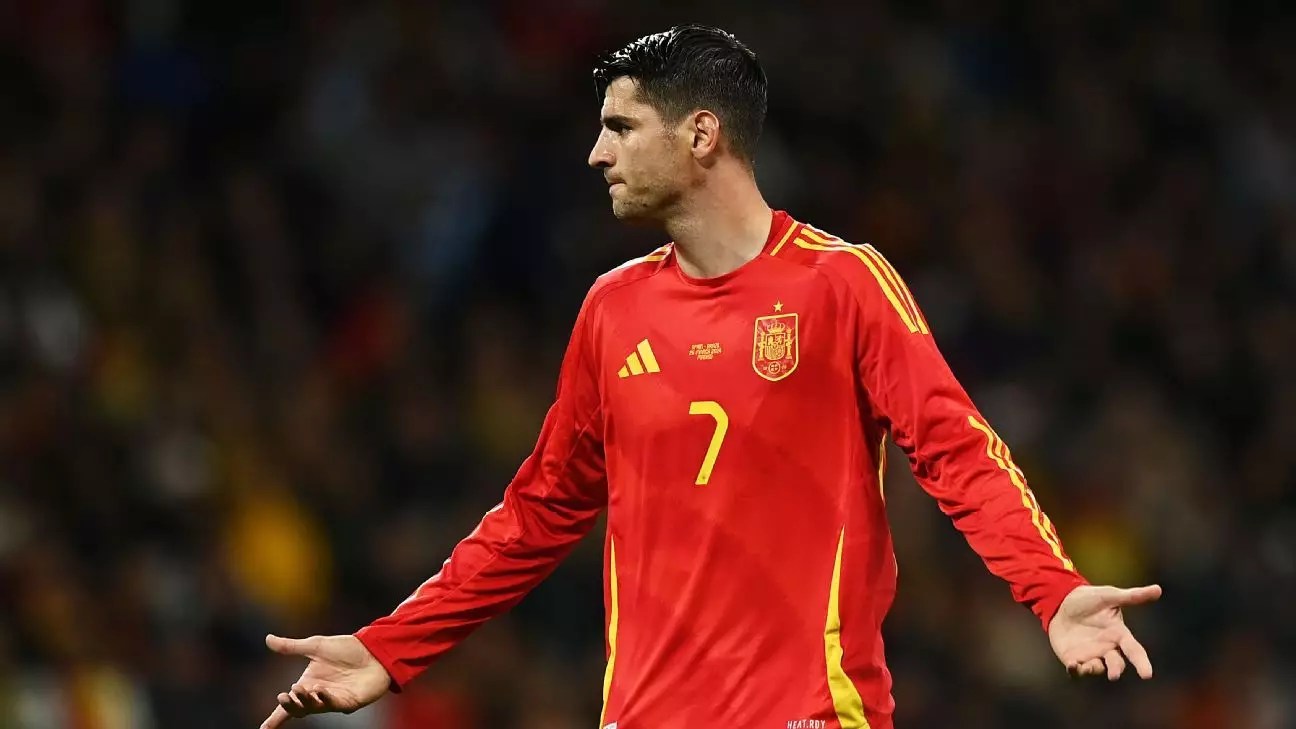The world of professional sports often intertwines with the personal lives of athletes, but sometimes those lines can blur in alarming ways. Recently, Álvaro Morata, the star forward for AC Milan, found himself embroiled in controversy after a seemingly innocuous announcement turned into a significant privacy violation. The mayor of Corbetta, Marco Ballarini, took to social media to celebrate Morata’s residency in the small Italian town, inadvertently exposing the footballer to unwanted attention and scrutiny. Morata’s strong reaction highlights the often-overlooked issue of privacy within public life, especially for individuals in the spotlight.
Ballarini’s Instagram post, reveling in the addition of Morata as a “new fellow citizen” of Corbetta, saw the mayor playfully display his allegiance to rival club Inter Milan while simultaneously congratulating Morata. However, what was intended as a light-hearted welcome soon morphed into a source of anger for the athlete. Morata quickly expressed his dissatisfaction online, citing the disturbance to his family’s privacy as unacceptable. His statement emphasized the critical need for individuals, regardless of their celebrity status, to have their personal lives shielded from public exposure.
The situation is particularly poignant considering Morata’s recent changes in his personal life, including his separation from his wife, Alice Campello. As a father of four, protecting his children’s security and sense of normalcy is paramount. The public acknowledgment of his residence without his consent struck a nerve, leading him to declare his intention to relocate in order to safeguard his family.
In today’s digital age, social media serves as both a platform for connection and a means of scrutiny. Ballarini’s celebratory post is emblematic of how public figures can unwittingly cross boundaries in an effort to engage with their constituents. While many may see the mayor’s action as harmless enthusiasm, it starkly illustrates the potential for disregard for privacy in the age of instant information sharing. Morata’s ability to leverage social media for his response showcases the power dynamics at play, where athletes can claim their narrative in the face of public disclosures.
The mayor’s follow-up cryptic message with an “Inter” reference only intensified the situation, hinting at a lack of understanding or empathy towards Morata’s predicament. The playful jibe risks alienating the very resident he purported to welcome and adds to the culture of rivalry that permeates Italian football.
Morata’s experience raises essential questions regarding privacy rights for public figures and their families. As society continues to consume celebrity culture voraciously, the obligation to maintain a boundary between public admiration and private life becomes increasingly essential. If an athlete’s living arrangements are to be announced, one must consider whether that disclosure should originate from the individual or if consent should always be prioritized.
Álvaro Morata’s recent outcry against privacy invasion serves as a reminder to all—celebrity status does not negate the need for personal privacy. The repercussions of thoughtless online behavior can ripple out, affecting not just the individual but their families as well. As the lines between fan engagement and personal boundaries continue to blur, it’s critical that both civilians and public figures navigate this complex landscape with care and respect.


Leave a Reply